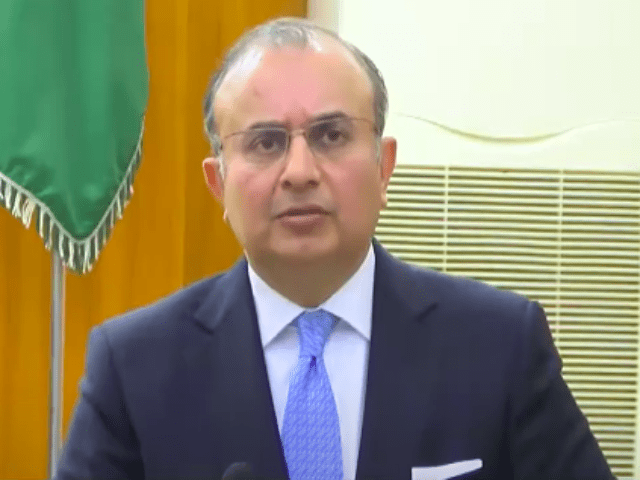Islamabad:
The higher judge of the judge of the Supreme Court, Syed Mansoor Ali Shah, warned that the extension of the constitutional bench (CB) without resolving the basic judicial dispute which could further undermine the legitimacy of the high level court and deepen the current institutional crisis.
“The Commission must Wait Till the Constitutionality of the 26th Constitutional Amendment is decided by this court before Addressing Matters that flow directly from it. Proceeding with extensions or re-points to a constitutional bench whose very legal foundation is under serious constitutional challenge further deepens the institutional crisis and Court’s legitimacy, “Justice Shah Wrote in a Two-Page Letter Addressed to the Secretary of the Judicial Commission of Pakistan (JCP).
A copy of the letter was also shared with all JCP members. However, the Commission, by majority vote, did not take into account the concerns of judge Shah and extended the mandate of the constitutional bench until November 30.
Justice Shah noted that his office had verbally informed the JCP secretary on June 12 that he would not be available in Pakistan to attend the meeting scheduled for June 19.
“It would have been reasonably planned that due to the unavailability of one of its members, the meeting would be deferred – in particular in accordance with past practice, where meetings were deferred due to the unavailability of members representing the executive. In addition, the meeting falls into the summer holidays announced by the court.
However, it seems that the meeting continues as planned – perhaps due to the minority position of the judiciary in the commission, “said the letter.
Judge Shah also asked that his written observations be included in the official reports of the JCP meeting, because he would not be able to attend, even virtually.
He stressed that the Commission was to recognize how the continuous delay in resolving the constitutionality of the 26th amendment erodes the credibility of the Court and shakes public confidence in its impartiality.
“It is both surprising and regrettable that, rather than first to address the legitimacy of the 26th amendment, the Commission rather favors the question of judicial extensions – an act which, in substance, continues the disputed regime introduced by this very amendment,” said the letter.
Justice Shah also warned against the growing influence of the executive to the Commission.
“It is imperative that the image of the court is not authorized to derive under the control or convenience of the executive, which now seems to exert a disproportionate influence on the affairs of the JCP.”
Pending the arbitration of constitutional disputes, he proposed that all the judges of the Supreme Court be appointed to the constitutional bench provisionally.
“Any selective inclusion without transparent process or identifiable criteria is manifestly discriminatory and prejudicial to institutional harmony.”
Judge Shah highlighted the urgent need to develop formal criteria for the selection of judges on the constitutional bench before any other constitution or expansion.
“The absence of objective standards makes past appointments vulnerable to the selection of cherries. This adhocism has already thrown a shadow on the legitimacy of the constitutional bench, and the continuous exclusion of higher judges without reason only makes this perception worse.”
Tackling another element of the agenda of the JCP meeting – linked to the framework of the rules under article 175A (20) of the Constitution – Judge Shah affirmed that no political decision should be taken until the constitutionality of the 26th amendment is settled, because it is currently disputed in a series of petitions.
In closing, he asked that his concerns be taken seriously.
“The strength of the judiciary is based on its credibility, its internal coherence and its fidelity to the constitutional principle – and not on the opportunity or executive preference. If the Commission must maintain its institutional legitimacy, it must lead with integrity, transparency and collective wisdom.”




